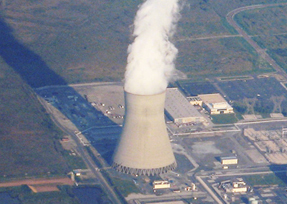How nuclear power is generated:
Nuclear reactors generate power by the process of nuclear fission of uranium. Unlike the burning of fossil fuels, this does not release any harmful byproducts into the atmosphere. This means that the production of electricity by nuclear sources does not release nitrogen oxides, sulfur oxides, dust or greenhouse gases like carbon dioxide.
The advantage of using nuclear power:
The environmental benefit of adopting nuclear power is far reaching. In America alone, the use of Nuclear power means that electric utility emissions of greenhouse gases is reduced by 20 percent, or 128 trillion tons per year. In France, after the adoption of nuclear power lead to reduction of SO2 and NOX levels by 71% and 60% respectively.
Disposal of nuclear waste:
Though the public may be concerned over the disposal of nuclear waste, this cost is included in the cost of electricity as well. Nuclear power operators are charged 0.1 cent per KW-Hr for the disposal of nuclear waste. In fact it has been said that the volume of waste generated from running an all electric household for thirty years would fit into a cigarette package.
The bigger picture:
Looking at the holistic picture it is easy to determine that with care and precaution, nuclear power can be an efficient and environment friendly source of power. In comparison to other fossil fuel sources, nuclear power is cheap. The price of nuclear energy is also considered to be more stable than the fluctuating price of oil. Another bonus is the fact that uranium is not only easily available, but it can be stockpiled as well.
France is another country that has aggressively employed the utilization of nuclear power. France started work on it nuclear program since 1973. Today it has around 59 nuclear plants generating around 78% of the country’s electricity.










